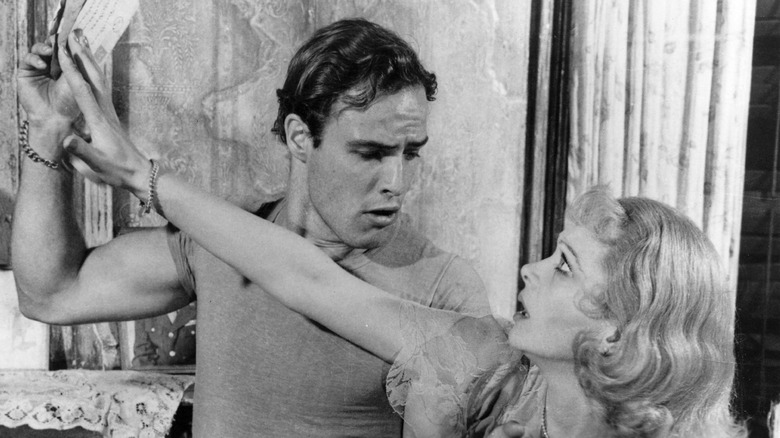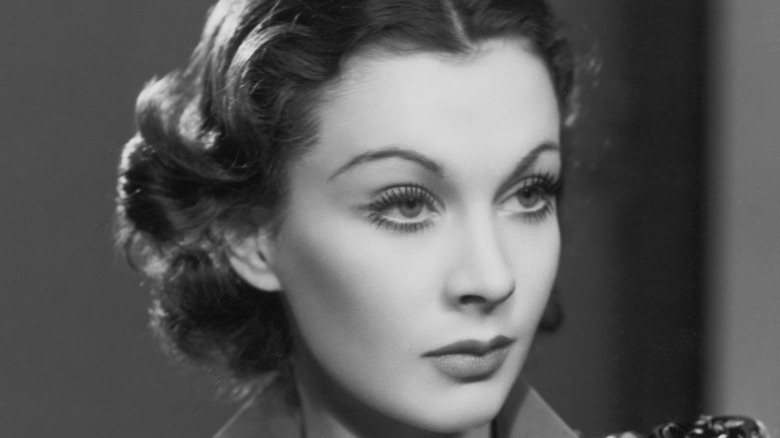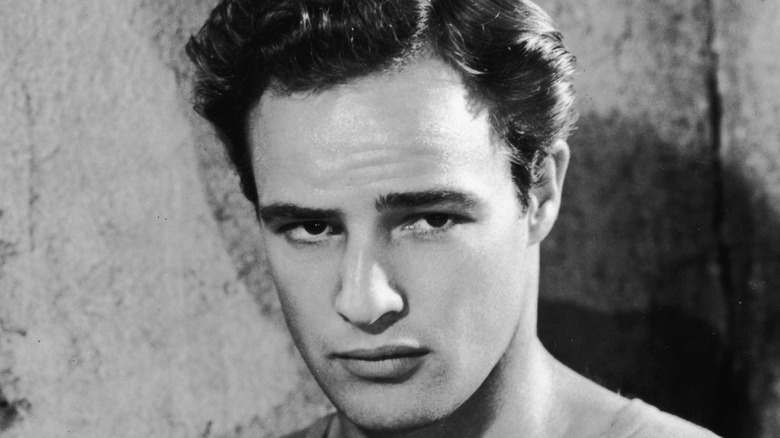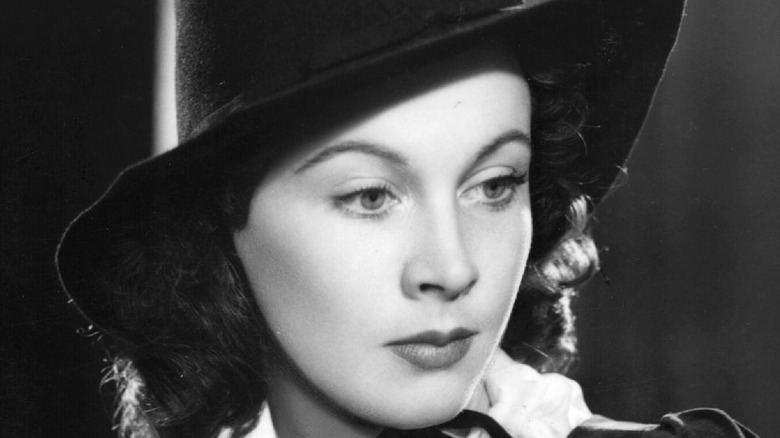The Truth About Marlon Brando's Relationship With Vivien Leigh
Marlon Brando and Vivien Leigh were one of the most iconic pairings on the silver screen. The two appeared as co-stars in "A Streetcar Named Desire" in 1951. Based off the play written by Tennessee Williams, the film followed teacher Blanche Du Bois — played by Leigh — who is forced to move in with her sister Stella and her husband Stanley — played by Brando. Du Bois adds more trouble to Stella and Stanley's already strained relationship.
"A Streetcar Named Desire" scored 12 nominations at the Academy Awards and won five of them. Brando and Leigh were nominated for best actor and actress, respectively. However, Leigh was the only of the two to take home an award. The film also won best supporting actor and best supporting actress, nearly sweeping the acting categories (via IMDb).
While there was a lot happening on screen for Leigh's character, Blanche Du Bois, a lot was happening off-screen as well. However, Brando's involvement in her tumultuous off-screen life contrasted with his womanizing reputation.
Marlon Brando referred to Vivien Leigh as 'beautiful'
In Marlon Brando's memoir "Songs My Mother Taught Me," he explained why he felt that Vivien Leigh was the perfect actress to cast as the troubled Blanche Du Bois. He stated that Leigh was beautiful, but vulnerable. In a heart-wrenching analogy, Brando compared her life to "that of Tennessee's wounded butterfly" in the plot of his play (via Cheatsheet).
Harper's Bazaar explains that in Leigh's personal life, she struggled with bipolar disorder that went undiagnosed (little was known about the condition at the time) and tuberculosis. The two illnesses began in the 1940s. By the time she appeared in "A Streetcar Named Desire," she dealt with numerous mental breakdowns and a miscarriage. Toward the end of the 1940s, her health issues negatively affected her marriage to Laurence Olivier, with whom she often acted in plays. Though they seemed to love each other given their numerous letters, they still divorced in 1960.
Marlon Brando did not pursue a relationship with Vivien Leigh
Another issue that plagued Vivien Leigh's marriage to Olivier was her extramarital affairs. Even her relationship with Laurence Olivier began as an affair for both of them. In 1953, she had an affair with "Elephant Walk" co-star Peter Finch before being dropped from the film due to her mental health, as told by The Guardian.
Marlon Brando was known for having multiple relationships with Hollywood elites as well. Given his and Leigh's propensity to cheat on romantic partners, it is surprising that they did not do so with each other. Brando sympathized with Olivier and cited Leigh's marriage to him as what stopped him from pursuing her. Brando knew that Leigh was sleeping with other men, and assumed that Olivier knew as well. Brando stated, "like a lot of husbands I've known, he [Olivier] pretended not to see it, and I liked him too much to invade his chicken coop" (via Cheatsheet).
Vivien Leigh's mental health suffered due to the role of Blanche
Perhaps Marlon Brando was also taking Vivien Leigh's mental health into account when he chose not to pursue a romantic relationship with her. Her symptoms were already impacting her life when their paths crossed to film "A Streetcar Named Desire." To add fuel to the fire, playing the struggling character of Blanche Du Bois brought Leigh to the "edge of insanity" despite her enthusiasm for the role first in a London theater production in 1949 and on the big screen in the United States soon after.
Brando may have been Hollywood's playboy, but in the case of his affections toward Leigh, he remained respectful. At a time when little was known about mental health, maybe Brando was ahead of his time. Or maybe he just knew a volatile situation when he saw one. His kind words for Leigh in "Songs My Mother Taught Me" indicates that he did care for her, but possibly in a different way than the women he did pursue.



